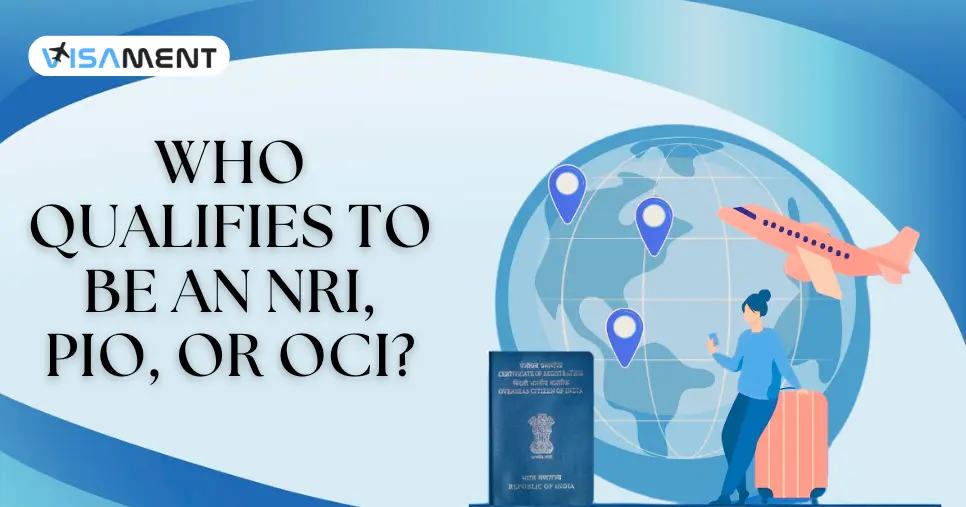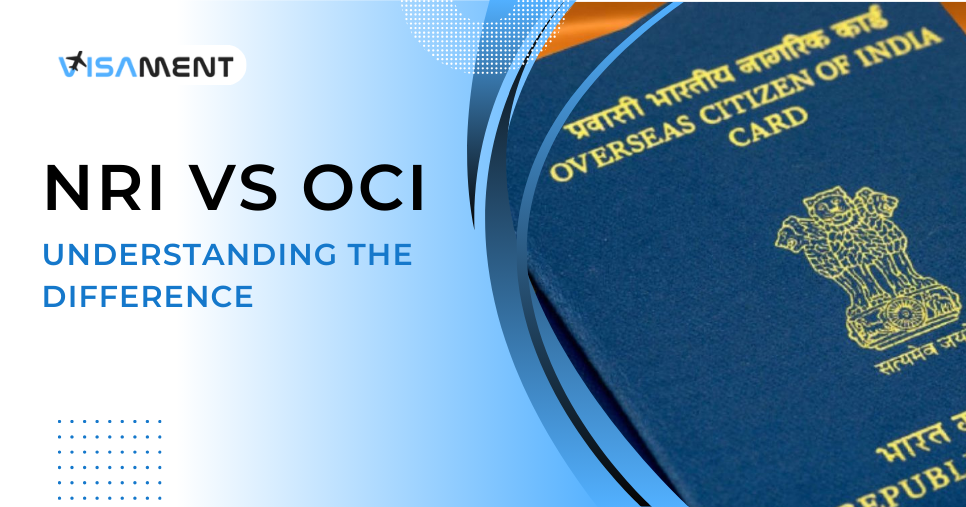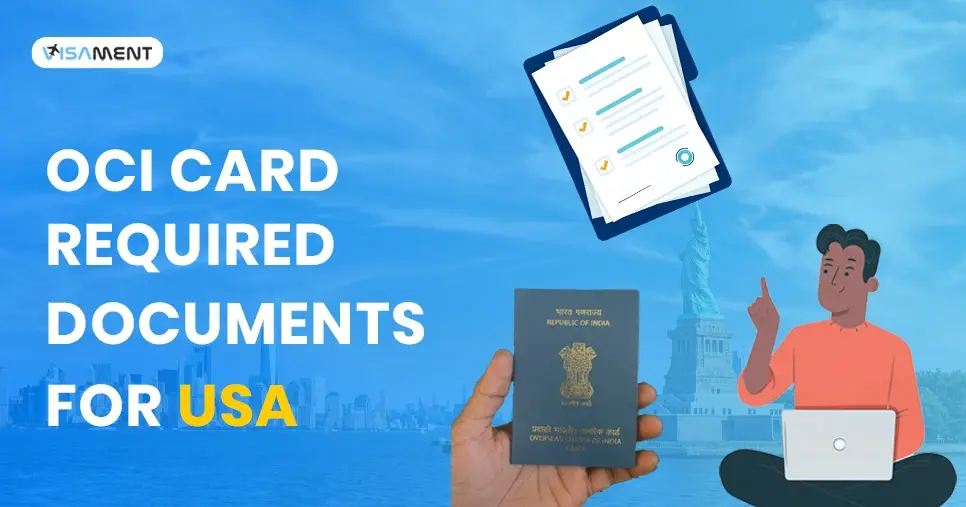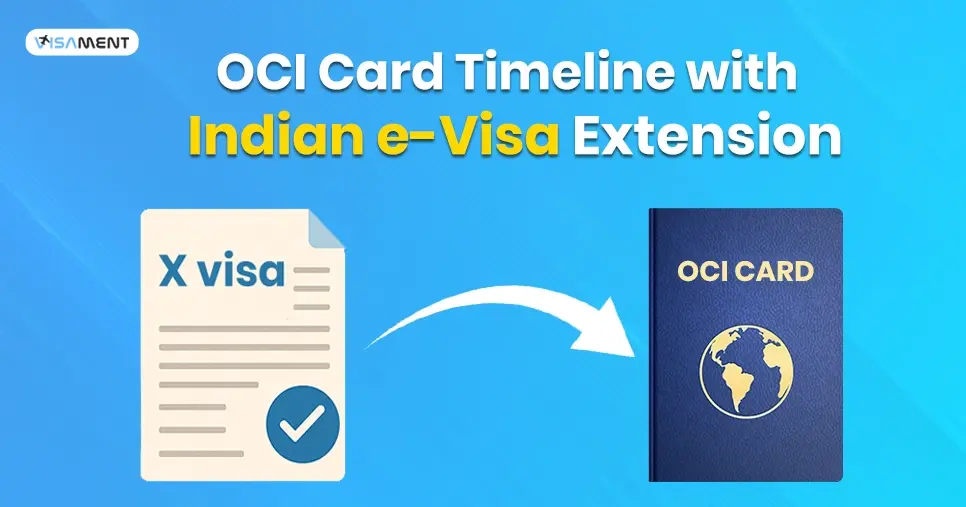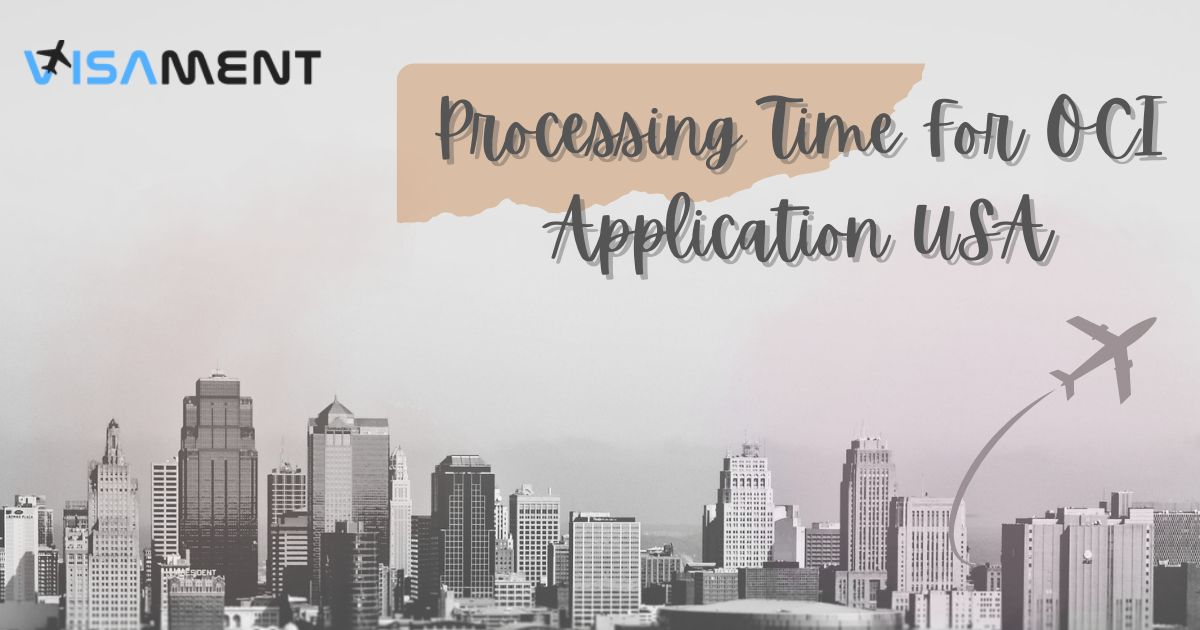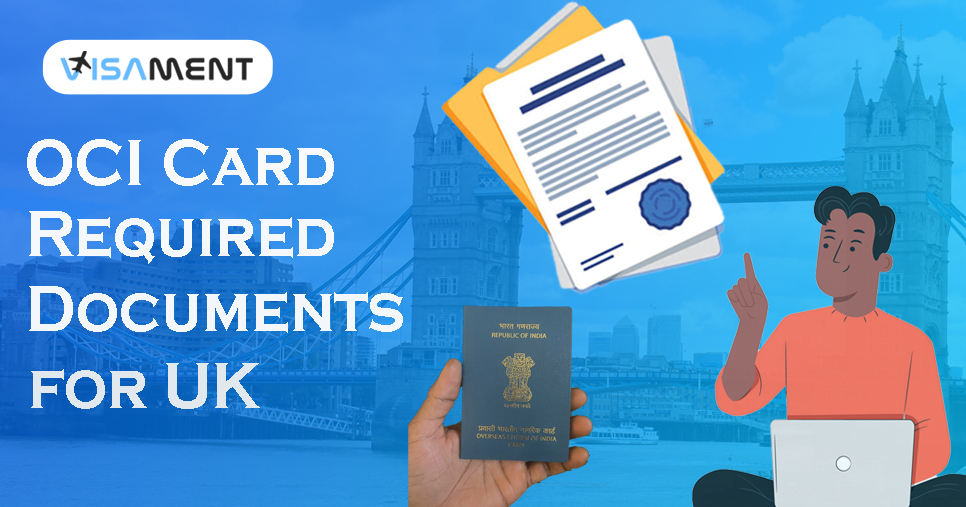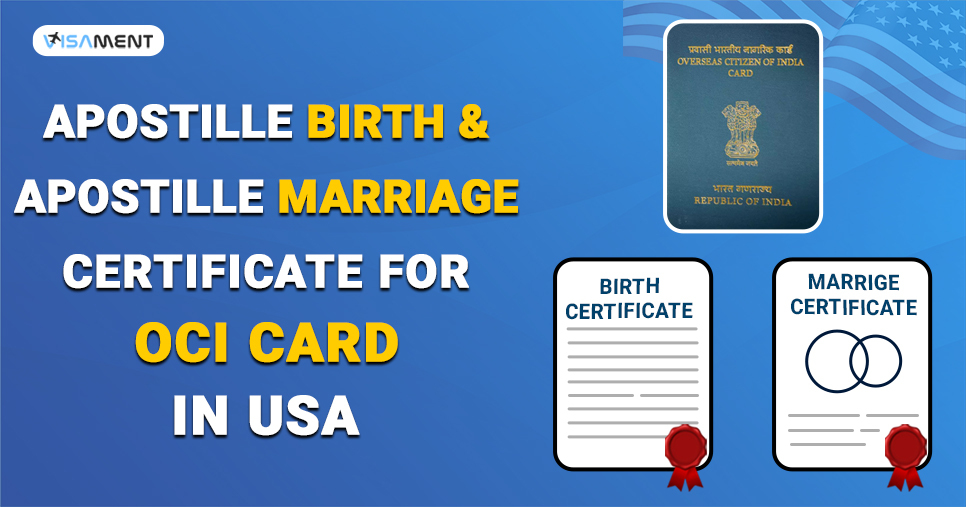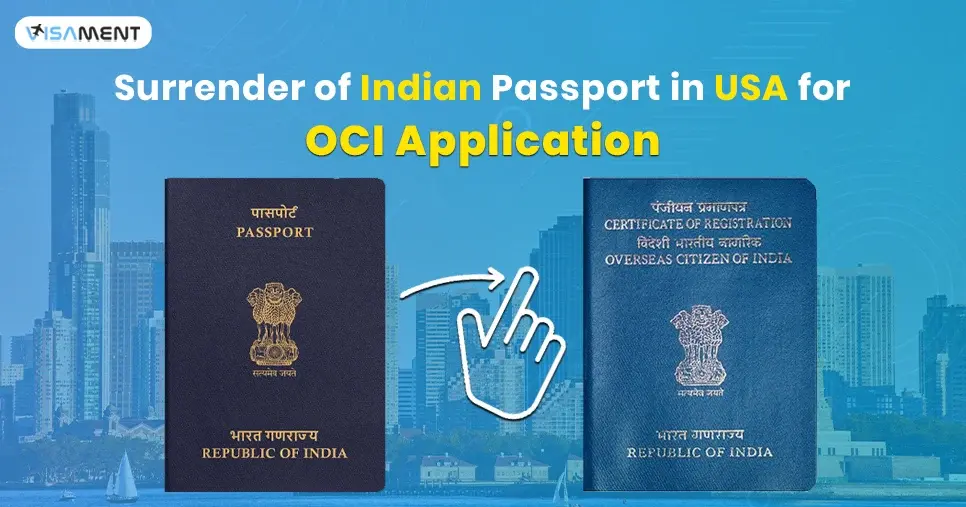Across various countries, India has a large and vibrant population. Over the years, many individuals from India have migrated overseas to seek better options. It includes work opportunities, quality studies, and lifestyle. However, besides living there many of them have maintained close ties with India. The Indian government uses several terms to categorize those. It includes NRI, PIO, and OCI. These are based on their relationship and citizenship in India. Also, all these categories hold different qualifications. Want to know about them? Read on and get all the information about them.
Who Are NRIs?
The word NRI is generally used to denote Indian-origin people living overseas. It has its own criteria to determine the status of the person. To be an NRI, one should be a citizen of India. In addition, he/she should have an Indian passport by their side and stay outside the country. The definition of a non-resident Indian varies according to the Income Tax Act 1961 (IT Act) and the Foreign Exchange Management Act (FEMA). Moving further, let's know the classification of it based on these two.
Classification of NRI As Per the Income Tax Act, 1961
Under the IT Act 1961, an individual is a non-resident Indian if he/she does not meet the following residency criteria:
- He/she has lived in India for 182 or more days during the previous fiscal year.
- During the last year, the individuals were for 60 or more days or 365 days or more straight for four years preceding the last accounting year.
Here the duration of 60 days is substituted in the following ways:
- If he/she is an Indian citizen and for 182 days leaving the nation for employment purposes or is a member of an Indian ship crew.
- If he/she is PIO/OCI or an Indian citizen coming for 120 days on a visit to India but has income more than Rs 15 Lakh.
- If he/she is PIO/OCI or an Indian citizen coming for 182 days on a visit to India but has income less than Rs 15 Lakh.
If any person fulfills the stated conditions he/she is known as an Indian resident for the last year. However, if they fail to fulfill the following circumstances they are considered as non-resident Indians.
Classification of NRI As Per the Foreign Exchange Management Act
Under the Foreign Exchange Management Act (FEMA) an individual is known as an NRI if:
- For more than 182 days in a fiscal year if an individual resides outside India.
- They have shown an intent with the supported papers to reside outside India or go overseas for an uncertain duration. It includes the following cases:
- A student planning to study outside India.
- An Indian resident going abroad for employment.
- A spouse accompanying his/her partner is employed overseas.
- A seafarer who works on overseas ships.
Here the residency status of the person as per the FEMA dictates the eligibility of his/her in making financial transactions in India. It includes making investments, opening bank accounts, repatriating funds, and more. However, for NRIs, it is vital to understand their resident status in India as per the IT Act. It further helps in fulfilling their tax liability in the country. With this, moving ahead, let's know about OCIs.
Who are OCIs?
The full form of OCI is Overseas Citizen of India. In August 2005 the scheme was introduced to people by the Indian government amending the 1955 Citizenship Act. Following individuals are considered OCI as per the Act:
- An individual who:
- After the commencement of the Indian constitution on 26 January 1950, an individual was an Indian citizen on or after that time.
- Is a foreign citizen but was eligible to be an Indian citizen on 26 January 1950.
- Is a foreign citizen but belongs to a place that became a part of India after 15 August 1947.
- Is a child, grandchild, or great-grandchild of an Indian citizen.
- A child under 18 of the above-mentioned person.
- A minor person if one or both of his/her parents are Indian citizens.
- A spouse of a foreign origin married to an Indian citizen or OCI. However, an individual needs to show their marriage registration. In addition, their marriage remains for constant two or more years.
It was all about overseas citizens in India. Also, the Indian government provides OCI cards to these people that offer them several perks. Moving ahead, let's know about another term- PIO.
Say goodbye to paperwork stress! Hassle-free OCI card application for NRIs in the USA & UK.
Apply NowWho are PIOs?
The full form of PIO is a Person of India Origin. As per the 1955 Citizenship Act of India, an individual is considered a PIO if he/she is a foreign citizen and has the following things:
- At any time he/she had an Indian passport by their side.
- If an individual or any of his/her family members were born in India as stated in the 1935, Government of India Act. In addition, born in other territories that later become the part of country. However, it does not include countries like Bangladesh, Pakistan, or any other notified nations.
- Being a spouse of a citizen of India or an individual of Indian origin who fulfills any of the mentioned cases.
It was all about PIO. However, in the year 2015, the term was discontinued by the Indian government. In addition, it was replaced by the OCI. Also, the PIO cardholders were asked to convert their cards into OCI cards. As an outcome at the present time, the word PIO has not so used by people since 2015. With this, the OCI offers more perks than the PIO category. Moving ahead, let's know the rights of NRI, PIO, and OCI citizens in India.
Indian Nationals Abroad: Rights of PIO, NRI and OCI in India
Do you know the Indian government does provide specific rights to NRI, PIO, and OCI? Yes, you read it correctly. Want to know what they are? Read the next section and get answers to all your questions.
Rights of NRIs in India
The rights of NRIs include the following things:
- Though the NRIs live abroad they can retain their Indian passport and citizenship.
- Also, during the Indian election, they are eligible to vote like the residents of India.
- Apart from that, like the local Indian residents they have equal financial, educational, and economic rights in India. For instance, they can operate a bank account in India, invest in stock markets, and more. However, they cannot own any agricultural land or any plantation property in the country.
- In addition, they are liable to pay income tax on the money earned or accrued in India.
Rights of OCI in India
As an OCI an individual can apply for an OCI card available on the OCI services portal. It offers a lifelong visa to Indian-origin people living overseas. In addition, helps them to visit India without a visa and provides them the same rights as NRIs. Moving ahead, let's know the rights of the OCIs in India.
- An OCI card holder has the right to appear in all India exams. It includes the National Eligibility cum Entrance Test (NEET), Joint Entrance Examination both mains and advanced, and more. However, they are not eligible to get admission to the seats reserved for Indian citizens in the exam.
- An OCI card holder gets fast immigration clearance.
- In addition, an OCI card holder has the right to take consular services.
- Sale or purchase of any immovable properties. However, it does not include farmhouse, agricultural, and plantation ones.
- If a person decides to live in India, all the services will be facilitated.
- Inter-country adoption of citizens of India, provided the people to comply with the process as stated by the officials.
Rights of PIO in India
A person of Indian origin (PIO) in India has the following rights:
- The PIO cardholders do not require a visa if they travel to India. However, their stay in India should not be more than 180 days.
- PIOs have the same rights as the NRI in terms of holding, acquiring, and transferring property. In addition, taking part in financial activities and accessing Indian institutions.
- To open a bank account in India the PIO cardholders can use their card as identity proof.
- Apart from that, PIO can also apply for a PAN card in India.
These are the following rights of all the three Indian national abroad terminologies. Apart from the rights the Indian constitution does apply some restrictions on them. Want to know about them? Browse to the next section.
Restrictions on NRI, PIO, and OCI in India
As stated above, apart from the rights the Indian government does implement some restrictions on NRI, PIO, and OCI. However, in comparison to NRIs, OCIs and PIOs have more limitations in India. Moving further, let's know about more restrictions on the PIO and OCI cardholders.
- The first one in this is unlike NRIs, PIO and OCI cardholders are not allowed to vote in the Indian election. Also, they are not allowed to hold any political positions like Vice President, President, or Judge in the court.
- In addition, do not have permission to hold any government positions. In simple words, they are not eligible to get any kind of government job in India.
- Apart from that, they need permission to participate in certain activities. It includes mountaineering, missionary work, or any type of research.
- With this, they do need permission to visit any restricted or protected area by the Indian government. Also, like NRIs, they cannot buy any sort of plantation property or agricultural land in the country.
These are some of the key restrictions that OCI and PIO cardholders face in India. Well, as mentioned above the status of PIO has merged with the OCI, stating most of their limitations in India are the same. With this, moving ahead, let's know the key difference between NRI, PIO, and OCI in India.
Difference Between NRI, PIO, and OCI in India
Following are the key differences between NRI, PIO, and OCI in India:
Citizenship
The NRIs in India have permission to retain their Indian citizenship while living overseas. However, the PIO and OCI cardholders are not citizens of India. In addition, if they want to retain their citizenship they need to leave the citizenship of the country where they are living currently.
Visa Requirements
Generally, NRIs do not need a visa to travel to India. However, depending on the situation PIO and OCI cardholders do need to apply for the Indian visa.
Rights
In comparison to PIO and OCI cardholders, NRIs have the most rights in India. After the NRIs, its OCIs have more rights, and PIOs have more restrictions. With this, unlike PIOs and OCIs, non-resident Indians have the right to vote in the Indian election.
These are the key differences between NRI, PIO, and OCI in India. Well, it is vital for any individual to know about them. It not only helps in their safe staying in India. In addition, assist them in breaking any rules.
Conclusion
The terminologies NRI, PIO, and OCI state the status of an individual who is in India but living abroad. In addition, three of them follow the same eligibility criteria to function the financial transactions in India. However, as mentioned above they have some differences in privileges and rights in India. So, every person should know about that. It assists them in living securely in India without any hassle. Furthermore, if you still face issues then take the help of Visament. The experts here guide you better about your rights in India. Also, they assist you with any of your services related to your passport or your status. Connect with us now and get the best assistance on your side.
Frequently Asked Questions
To apply for OCI card you need to fill out the application form online available at passport.gov.in/oci and upload the required documents with your signature. After that make a printout of the form and along with the mentioned documents submit it to the Indian Post/Mission/FRRO of the country where you are residing.
An OCI card is eligible for those who were Indian citizens at the time of or at any time after January 26th, 1950. In addition, who were eligible to become Indian citizens on January 26th, 1950, or who belonged to a territory that became part of the country after August 15, 1947, or a child, grandchild, or great-grandchild of an Indian citizen.
In most cases, OCI cardholders have the same rights as the NRIs in India. For example, the card provides them with a lifelong visa to travel the country. However, there are some restrictions on them as well like not being able to vote in the Indian election, unlike NRIs.
Under the Income Tax Act, the Indian government has reduced the number of staying days from 182 to 120 for the NRIs whose annual income is more than 15 Lakhs.
Yes, NRI, PIO, and OCI are allowed to buy any residential or immovable property in India. However, they are restricted to purchasing agricultural land, plantation property, or farmhouses in the country.
OCI cardholders are not entitled to get the benefits of government subsidies and repatriation in India.
The full form of NRI is Non-Resident Indian (NRI).
The full form of PIO is Person of Indian Origin (PIO).
